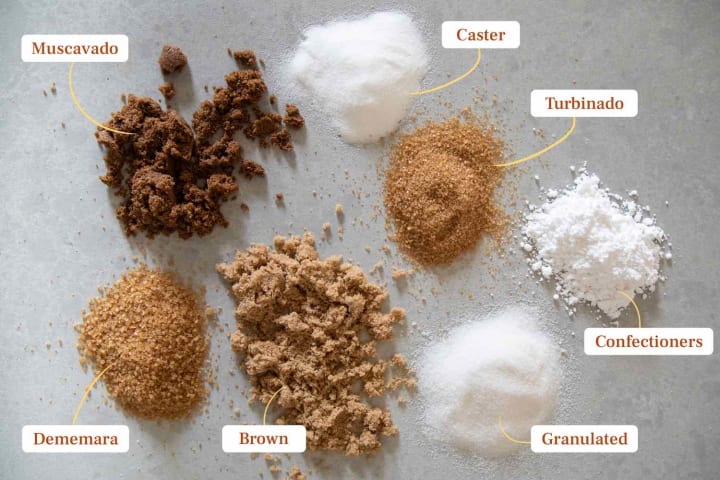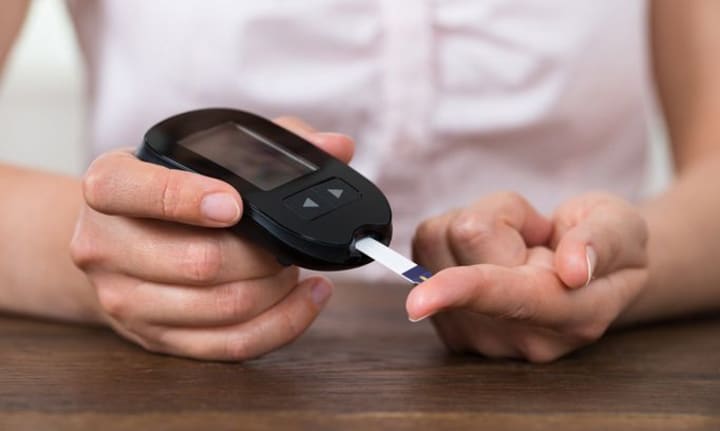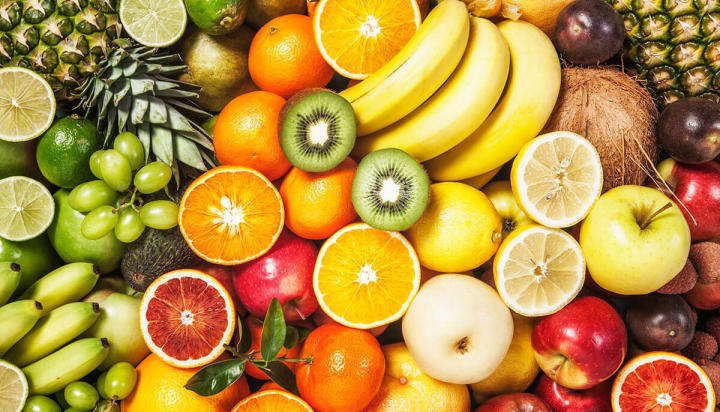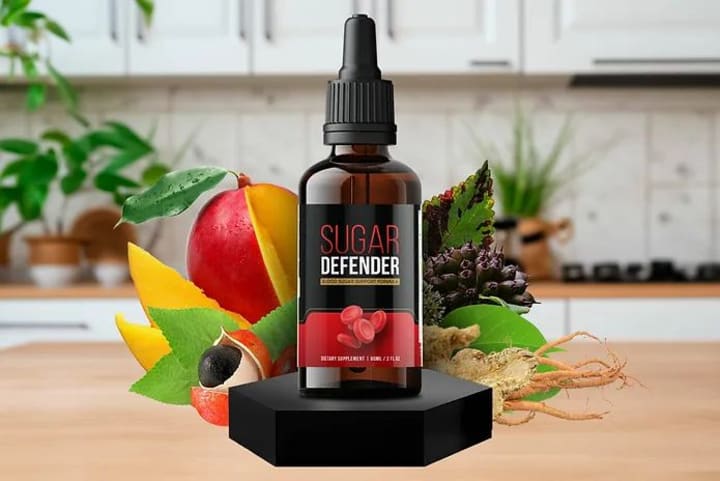How Sugar is Destroying You
The Sweet Poison

In today’s fast-paced lifestyle, the sweet tooth has become a bitter enemy. The narrative that "sugar is poison" is gaining traction, not as a scare tactic, but as a stark wake-up call to the dangers lurking in our diets. This invisible villain, found not only in obvious sweets but camouflaged in numerous processed foods, plays a significant role in the rising epidemic of lifestyle diseases. The issue is not just about an extra inch on the waistline; it's about the profound impact sugar has on overall health, contributing to conditions like diabetes, depression, and anxiety. Understanding the gravity of this concern is essential for making informed dietary choices, advocating for a shift toward whole foods and improved well-being.
This article delves into the intricacies of sugar, distinguishing between its various types and shedding light on why moderation is key. You will explore the immediate effects high sugar consumption has on your body, contributing to temporary states of distress and how continuous indulgence can lead to long-term health risks, including but not limited to diabetes, depression, and anxiety. Furthermore, practical steps to reduce sugar intake will be discussed, offering hope and guidance for those looking to make healthier lifestyle decisions. By adopting more whole foods into your diet and understanding the complex dynamics of sugar, you can begin to untangle its tight grip on your health, steering towards a path of recovery and vitality.
Understanding Sugar and Its Types
How to Reset Blood Sugar Levels

Natural Sugars vs. Added Sugars
Sugars in your diet come in two main types: naturally occurring sugars and added sugars. Naturally occurring sugars are found in foods such as fruits, which contain fructose, and dairy products, which contain lactose. These sugars are integral to the foods themselves and offer additional nutrients that benefit your health. For instance, fruits not only provide natural sugar but also essential nutrients like potassium and vitamin C.
On the other hand, added sugars are those introduced to foods during processing or preparation. This includes the sugar you might add to your coffee or the sugars included in products like cakes and candies. Common added sugars include high fructose corn syrup and table sugar (sucrose), which can rapidly spike your blood glucose levels and contribute to health issues when consumed in excess.
Sources of Added Sugars
The primary sources of added sugars in the American diet are sugary beverages, desserts, sweet snacks, and sweetened dairy products like flavored yogurt. Beverages such as sodas and fruit drinks make up a significant portion of added sugar intake, contributing to various health risks associated with high sugar consumption. It's crucial to be aware of hidden sugars in foods you might not consider sweet, such as certain breads and processed snacks. These can often be identified in the ingredients list under names like maltose or dextrose.
To manage your sugar intake, start by understanding food labels. Terms like "sugar-free" or "no added sugars" can guide you in choosing products with lower sugar content. However, remember that even natural sugars need to be consumed in moderation to maintain overall health.
The Immediate Effects of High Sugar Consumption
When you consume high amounts of sugar, your body experiences immediate physiological reactions. One of the most common reactions is a rapid spike in blood glucose levels, followed by a sharp drop, often referred to as a sugar crash. This cycle can lead to symptoms like hunger, irritability, fatigue, anxiety, headaches, difficulty concentrating, and even dizziness. These fluctuations disrupt your day by impacting your energy levels and productivity.
Blood Sugar Spikes and Energy Crashes
Consuming foods high in simple sugars, such as desserts and candies, causes your blood glucose to rise quickly. This is because these foods are often low in nutrients that slow digestion, like fiber and protein. The body responds by releasing insulin to reduce the high sugar level, which then leads to a sudden drop in energy, or hypoglycemia. To manage these spikes, it's beneficial to include balanced meals that contain a mix of protein, fiber, carbohydrates, and fats.
Impact on Appetite and Cravings
High sugar intake not only affects your energy levels but also influences your appetite and cravings throughout the day. Consuming sugar-rich foods can increase feelings of hunger and lead to overeating at subsequent meals. For instance, a study showed that women who consumed more sugar at breakfast felt hungrier before lunch and consumed more food compared to those who had less sugar. This is due to the high glycemic index of sugary foods, which can quickly alter your appetite and lead to increased caloric intake.
To mitigate these effects, it is advisable to focus on foods that help maintain stable blood sugar levels, such as whole grains, vegetables, and proteins. These foods help slow down the absorption of sugar, preventing rapid spikes and crashes, and support a more sustained feeling of fullness.
Long-term Health Risks of Excessive Sugar Intake
How to Reset Blood Sugar Levels

Weight Gain and Obesity
Consuming high amounts of sugar, particularly from sugar-sweetened beverages, has been linked to an increase in obesity. Studies suggest that the energy imbalance leading to obesity is influenced by factors such as the gut microbiome and prenatal conditions, but increased sugar intake plays a significant role. The dramatic rise in sugar consumption since the 1970s parallels the increase in obesity rates, highlighting sugar's impact on weight gain.
Diabetes
Excessive sugar intake can lead to type 2 diabetes by causing an increase in body weight and creating insulin resistance. While sugar itself doesn't directly cause diabetes, it significantly contributes to obesity, a major risk factor for diabetes. Additionally, increased sugar availability correlates with a higher prevalence of diabetes.
Heart Disease
Frequent consumption of foods high in added sugars, such as soft drinks and snacks, can lead to heart disease. Added sugars contribute to high blood pressure, a major risk factor for heart disease and stroke. Moreover, high sugar diets are associated with insulin resistance, further increasing heart disease risk. Meta-analysis indicates a greater risk of myocardial infarction with each additional daily serving of sugar-sweetened beverages.
Steps to Reduce Sugar in Your Diet

Reading Food Labels
To make informed choices about sugar intake, start by understanding the Nutrition Facts label on packaged foods and drinks. This label details the amount of added sugars, helping you choose foods lower in sugar. Aim for products labeled as "LOW" in added sugars, which indicates a lower Daily Value percentage.
Healthy Swaps
Replace high-sugar items with healthier alternatives to reduce your sugar consumption effectively. Use unsweetened applesauce instead of sugar in baking, or opt for natural sweeteners like stevia. Additionally, swap sugary beverages for water infused with natural flavors like mint or citrus. For desserts, choose fresh fruits instead of sugary processed options.
Cooking at Home
Increase the frequency of home-cooked meals to control sugar intake and enhance overall diet quality. Cooking at home allows you to use fresh, whole ingredients, reducing reliance on processed foods high in added sugars. Simple cooking methods, like grilling or baking, can also help maintain the nutritional value of food while minimizing sugar content.
Conclusion
Throughout this examination of sugar's impact, it's clear that reducing consumption is imperative for fostering a healthier lifestyle and mitigating the risk of chronic conditions like diabetes, obesity, and heart disease. By recognizing the different types of sugars, understanding their effects on the body, and taking practical steps to limit intake, individuals can make significant strides towards improved health. The journey towards reducing sugar in our diets is not merely a dietary adjustment but a shift towards conscious eating and wellness. It's about making informed choices that prioritize our health and well-being, empowering us to lead lives not dictated by the addictive pull of sugar.

For those ready to take a significant step towards conquering their sugar consumption and reclaiming control over their health, discovering more about effective strategies to reduce sugar intake can be a transformative experience. Consider exploring further resources that provide detailed guidance and support for this journey, offering a path towards a healthier, sugar-conscious lifestyle. By utilizing these tools and adopting a mindful approach to our dietary habits, we collectively forge a future where our relationship with food nurtures rather than diminishes our health. Kickstart your journey towards sugar reduction and unlock the door to a healthier you by exploring more.
About the Creator
Enjoyed the story? Support the Creator.
Subscribe for free to receive all their stories in your feed. You could also pledge your support or give them a one-off tip, letting them know you appreciate their work.





Comments
There are no comments for this story
Be the first to respond and start the conversation.